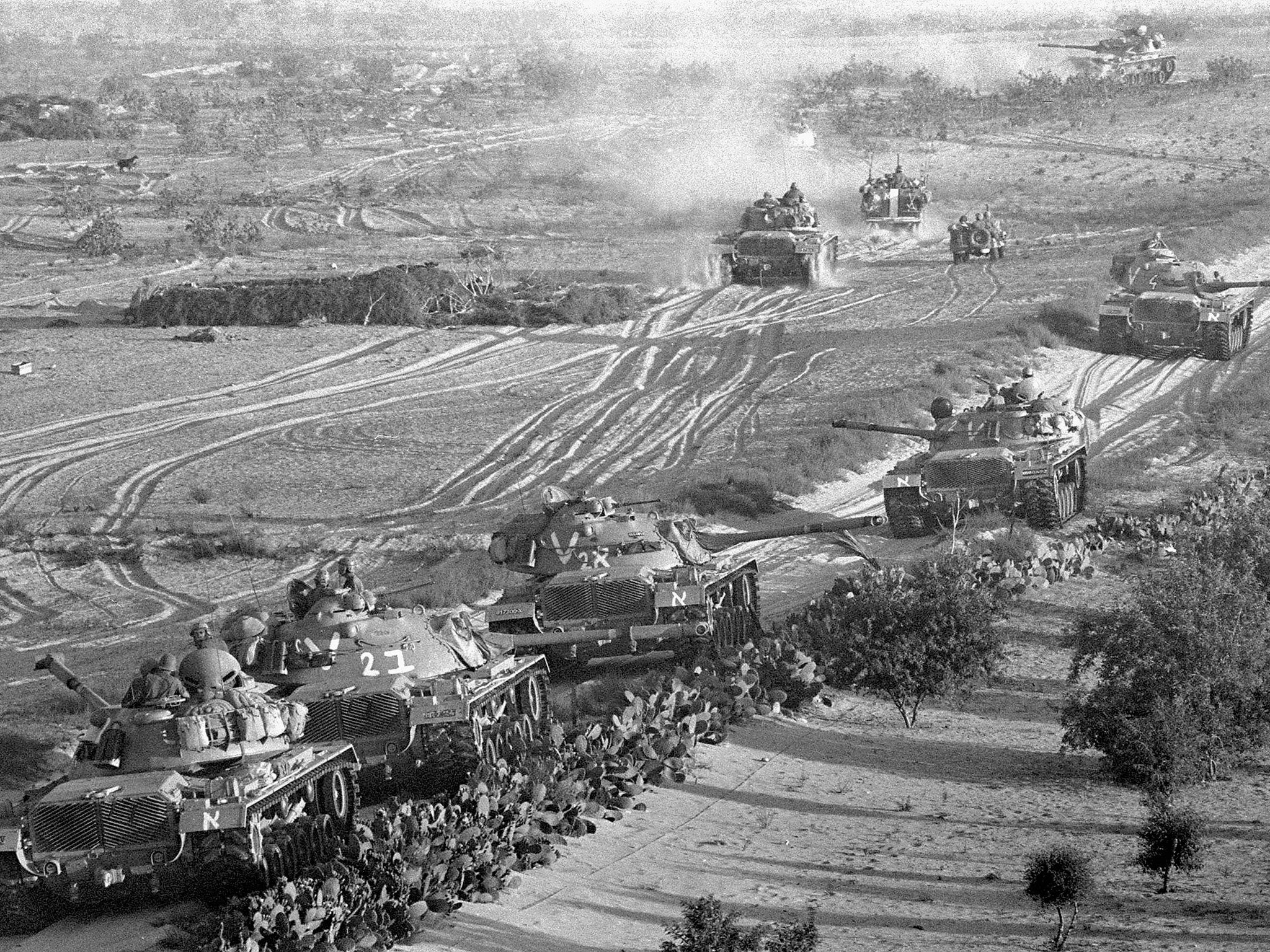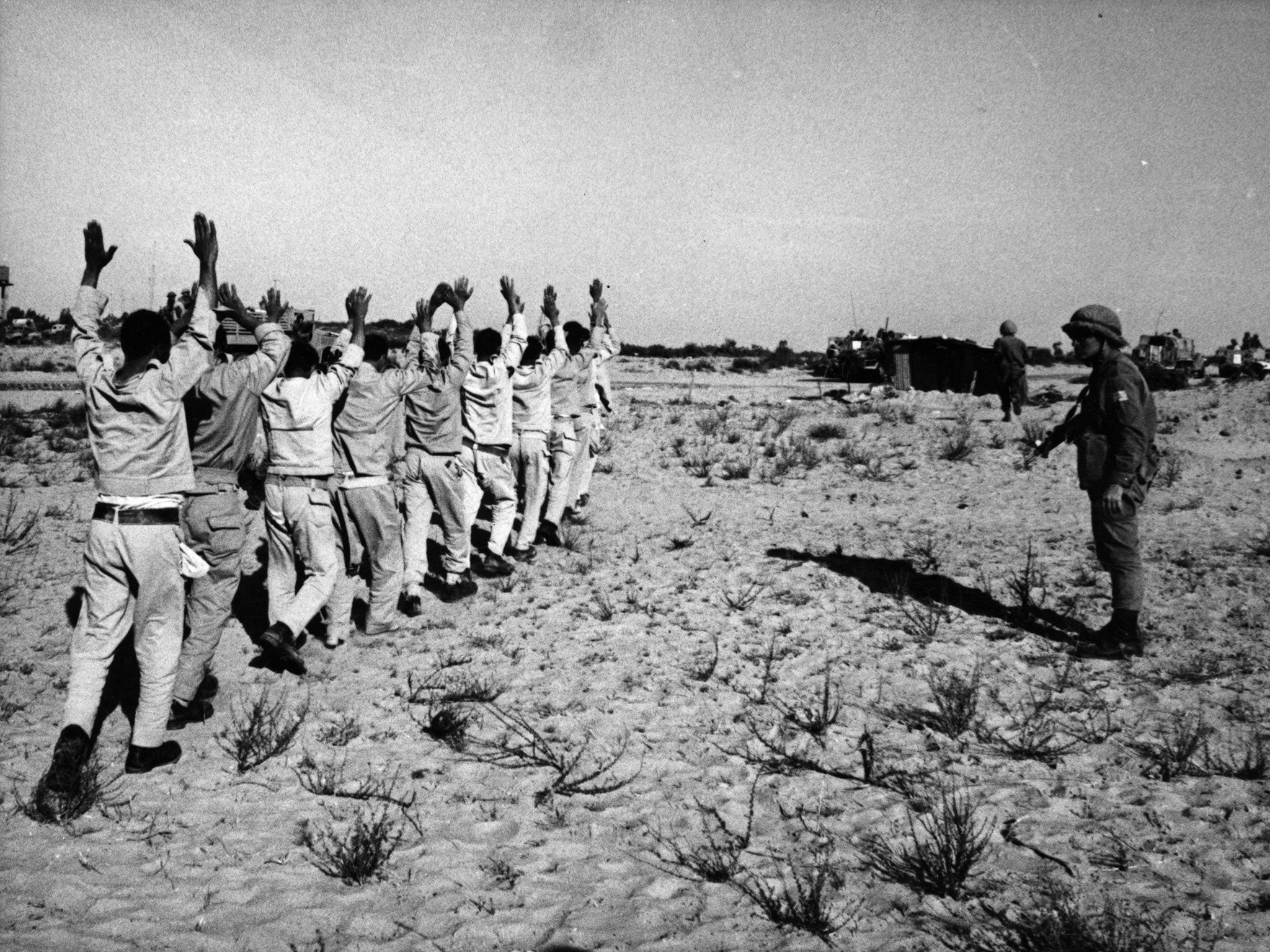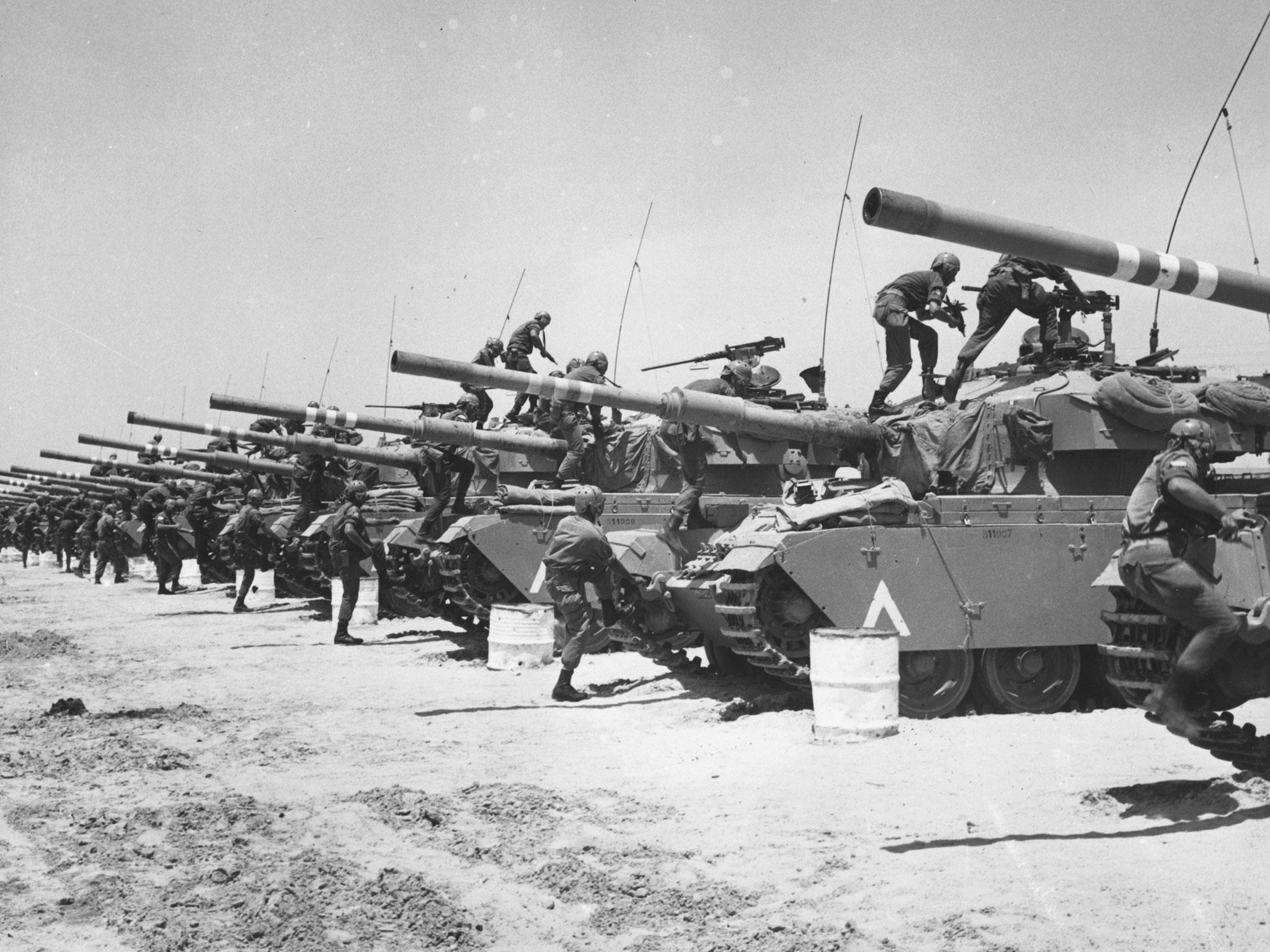Israel had secret plan to use nuclear bomb in Sinai during Six Day War, report reveals
Revelation could undermine Israel's decades-long policy of nuclear ambiguity

Israel had a secret plan to detonate a nuclear bomb in Egypt's Sinai Peninsula in the event it faced defeat during the 1967 Middle East war, according to newly released documents.
The besieged nation planned to set off the atomic weapon atop a mountain in the Sinai Peninsula as a warning to Egyptian and Arab forces with the hope of intimidating them into backing off.
The revelation could undermine Israel's decades-long policy of nuclear ambiguity.
But the operation was never carried out, as Israel vanquished its enemies in six days.
The contingency plans were called a "doomsday operation" by Itzhak Yaakov, a retired brigadier general who was the chief liason between the Israeli military and the civilian defence industries, including those overseeing the nuclear project.
The Nuclear Proliferation International History Project of the Woodrow Wilson International Center for Scholars in Washington unveiled a website devoted to "Operation Shimshon," the code name for the hastily arranged contingency plan of placing an improvised nuclear device in Sinai to be detonated upon the prime minister's orders.
The operation's name, Hebrew for Samson, invoked the biblical figure of great power and aimed to scare Arab armies into halting their offensive should Israel face what was feared to be an existential threat.
In a series of interviews in 1999 with Avner Cohen, a leading scholar of Israeli nuclear history, Mr Yaakov detailed how he came up with the plans at his superiors' urging and how a pair of helicopters was chosen for the mission along with forces from the elite Sayeret Matkal unit.
The selected landing site was a mountain in eastern Sinai, about 20 kilometres (12 miles) from the large Egyptian military complex in Abu Ageila. There, the semi-assembled "spider" device was to be connected with its nuclear core and linked to ignition wires.
"You've got an enemy, and he says he's going to throw you to the sea. You believe him," Mr Yaakov said, according to a transcription of his taped interview with Mr Cohen.
"How can you stop him?" he asked. "You scare him. If you've got something you can scare him with, you scare him."
The distance of the site from Egyptian population centres, and the relatively small size of the device, indicated that the plan was meant to send a message of deterrence, rather than inflict heavy damage.

In an accompanying essay, Mr Cohen concludes Israel's leadership did not seriously consider conducting a nuclear demonstration.
But he said Mr Yaakov's testimony was significant since it revealed that Israel had the capability to improvise a nuclear explosive device in June 1967.
Israel maintains a policy of nuclear ambiguity, neither confirming nor denying the existence of an arsenal, but it is widely believed to possess hundreds of nuclear bombs.
Israeli officials have often hinted that the country possesses nuclear capabilities, and a former employee at Israel's nuclear reactor served 18 years in Israeli prison for leaking details and pictures of Israel's alleged nuclear weapons program to a British newspaper in 1986.
The Wilson center's project was first reported by the New York Times. Israel's Foreign Ministry had no comment.

However, Michael Oren, deputy minister, former ambassador to the United States and a historian who has written extensively about the 1967 war, said he was convinced it never happened.
Mrr Oren said Mr Cohen's paper relied on a single source, which was highly unusual among serious researchers.
"It's not sound history," he said.
"I also interviewed Yitzhak Yaakov and I wasn't convinced that his story held water. Tens of thousands, if not hundreds of thousands, of classified documents from the Six-Day War have been released," he said, "and there is not even one shred that supports Avner Cohen's version.
"If there was something, we would have found additional evidence."
Mr Yaakov died in 2013 at the age of 87.
Mr Cohen said he promised Mr Yaakov he would publish his story at some point and said the 50th anniversary of the 1967 war this week seemed the appropriate time.
Join our commenting forum
Join thought-provoking conversations, follow other Independent readers and see their replies
Comments